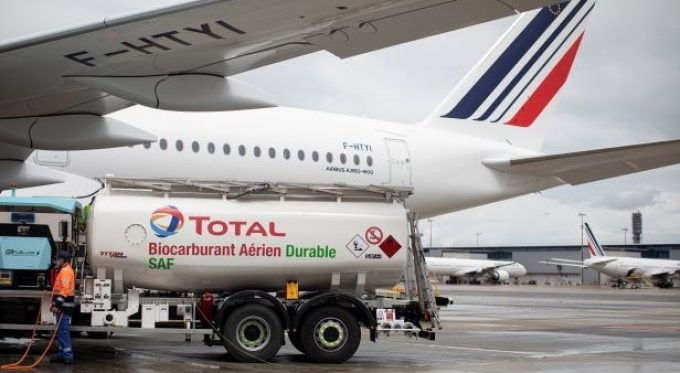Hutchison megadeal reveals dark side of container shipping
What money cannot buy

Air France-KLM has operated its first flight using French-made sustainable aviation fuel (SAF).
In partnership with Airbus and fuel company Total, Air France used a 16% blend of SAF on a A350 flight from Paris to Montreal, which avoided the emission of 20 tons of CO2.
The ...
Predatory rivals circle as the ripples from DSV's Schenker buy widen
Latest Israeli attack on Iran a threat to box ships in Straits of Hormuz
DHL Express facilities in Canada forced to shut down by strike
Industry concerns rise after yet another box ship on fire off Indian coast
New Middle East conflict brings airspace closures, flight chaos and oil price worry
More legal trouble in India for MSC: feeder vessel detained after box ship disasters
Return of downward pressure on container spot freight rates
BYD launches logistics subsidiary – and eyes ports and shipping sectors

Comment on this article